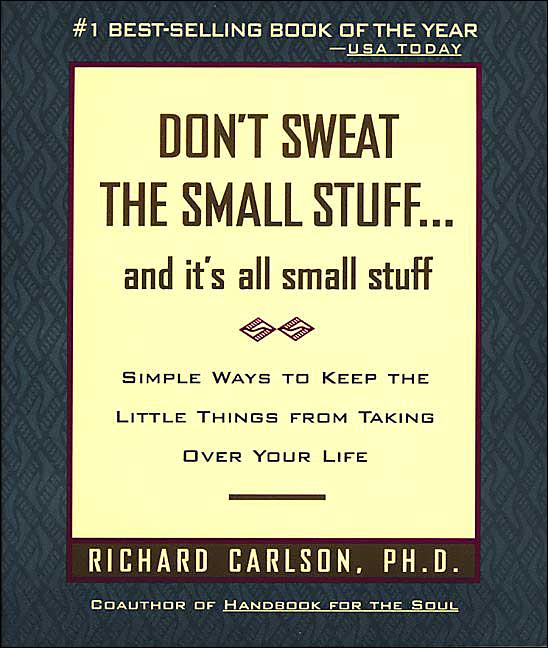Ninety percent of the world's woe comes from people not knowing themselves, their abilities, their frailties, and even their real virtues. Most of us go almost all the way through life as complete strangers to ourselves.
—Sydney J. Harris, Chicago Daily News
I like to think of self-knowledge as going hand in hand with metacognition, a neology I heard from Mr. Roy once at the beginning of the year in Psych class. To be metacognizant is to think about one’s own thoughts. Analyzing and understanding why we do the things we do gives us knowledge of ourselves.
This anecdote came up a few weeks ago after one of our daily readings from Don’t Sweat the Small Stuff. Mr. Roy spends more time than most on improving his house. However, many days when he gets home from work and he sees his house, he gets upset or frustrated thinking about how little his work has paid off and how much more work he still has to do to his house. Other days, when he sees his house, he feels happy and proud of all that he has accomplished over the years.

Obviously, it’s the same house in either scenario; all that changes is Mr. Roy’s mood. It’s easy for Dr. Richard Carlson to tell us not to sweat the small stuff just because of our mood, but how often are we really (meta-)cognizant of these sorts of internal motivations—inner beliefs, moods, stereotypes, prejudices?
A firm understanding of ourselves allows us to understand why we make decisions, and to weigh their worth. In the example of Mr. Roy, knowing that something had upset him earlier that day allowed him to understand why he thought his house was decrepit, and that knowledge allowed him to realize that his perception was biased by an external event. Self-knowledge can virtually always make our relationships better and allow us to find the roots of disputes more quickly by being open about what specifically makes us upset.
Personally
“By an equal or fair amount I understand a mean amount, or one that lies between excess and deficiency.”
—(I bet you can guess who said that)
When I think of my strengths, I think of words like leadership, assertiveness, determination. Sections of the college application that I’ve spent so much time on come to mind: captain of a that sports team, an editor of this newspaper, member of that town committee, got this or that leadership award… whatever.
While my best quality may be that drive to succeed and to be a leader, that quality taken to excess is often a bad thing. If I were a character in a Greek tragedy, that determination would be my hamartia. Sometimes I can be too pushy, too controlling, not trusting of other people to do things that I know that I can do well.
As it turns out, working with people a lot is probably one of the best ways to cure any problems you might have regarding working with people. When co-editor-in-chief Abby Verney-Fink asks me how to do something in InDesign and I condescendingly push her away from the computer and do it myself, I get yelled at. When I try to impose too many rules and regulations on the section editors, I can count on Greg Swan to send me a scathing e-mail or to make fun of me in front of everyone for it. Through operant conditioning (Thorndike’s Law of Effect), I learn not to act that way, but rather to act more in moderation. For me, perhaps the mean that I am trying to achieve is balanced leadership, whereas the extremes are controlling (too much leadership; the realm I try not to enter) and apathetic (too little leadership).
Perhaps we all have two visions: an inner vision and an outer vision. Unlike Teiresias, Oedipus has a strong outer vision. His keen understanding of the world allows him to survive outside of Corinth and later even to banish the Sphinx. But what Oedipus lacks is inner vision—the ability to understand himself and to know himself. On an obvious level, Oedipus certainly does not know much about himself in terms of how he has already fulfilled the prophecy. On a more subtle level, however, Oedipus shows a lack of understanding of his inner motives when he brazenly dismisses Teiresias’ warnings, all the while scouring for clues about the very case that Teiresias could solve. The reason, I think, that many people have difficulty analyzing their strengths and weaknesses is that this inner vision is simply not a skill set that we often use, especially relative to how often we use our outer vision to inspect the world and other people. Like a muscle group, if a person’s introspective ability isn’t exercised, it will become weak.
1 comment:
Post a Comment